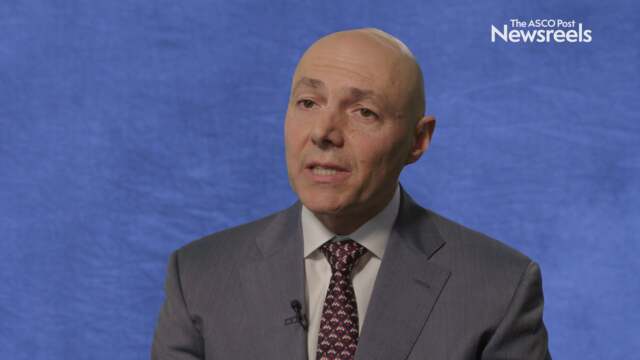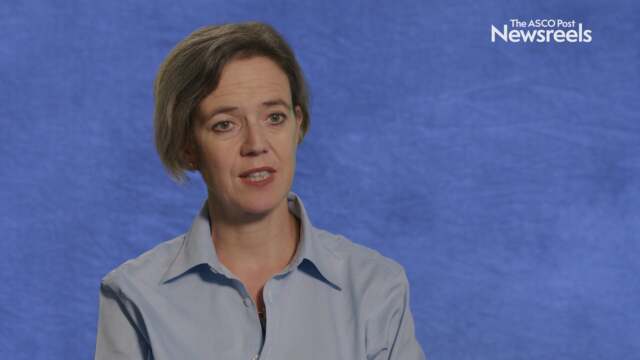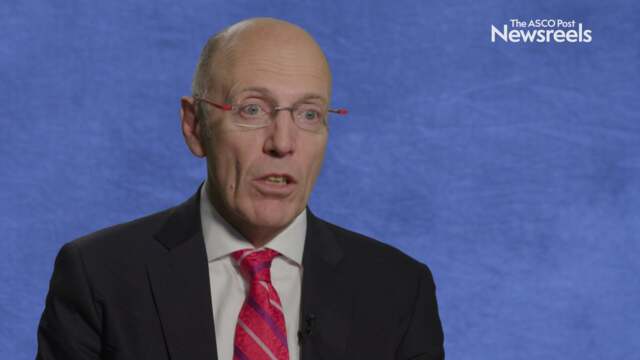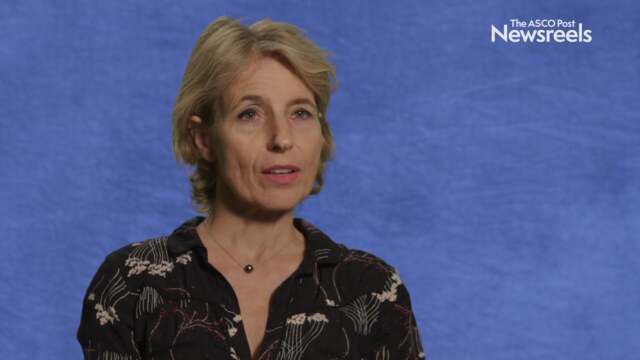Paolo A. Ascierto, MD, on Melanoma: Acute and Chronic Toxicities
ESMO 2018 Congress
Paolo A. Ascierto, MD, of Istituto Nazionale Tumori–Fondazione Pascale, discusses the breakthroughs in melanoma treatment and the challenges of managing toxicities, especially endocrine and neurologic side effects, which can require lifetime hormone replacement and may cause permanent dysfunction.
Ezra E.W. Cohen, MD, of the University of California, San Diego, discusses the effectiveness of anti–PD-1 therapy in patients with recurrent head and neck cancer and the studies that might help predict who will benefit, how to combine agents, and ways to reduce long-term toxicity.
Sibylle Lobil, MD, PhD, of the German Breast Group, discusses findings in metastatic breast cancer from the IMpassion130 trial in triple-negative disease and from the PALOMA3 and SOLAR-1 trials in hormone receptor–positive, HER2-negative disease (Abstracts LBA1_PR, LBA2_PR, LBA3_PR).
Nicholas D. James, PhD, MBBS, of University Hospitals Birmingham NHS Trust, discusses study findings on treating metastatic castration-sensitive prostate cancer, including results on radiotherapy and abiraterone (Abstract LBA5_PR).
Caroline Robert, MD, PhD, of Gustave Roussy Cancer Centre, discusses two high-impact studies in stage III melanoma treatment: an update of the COMBI-AD trial examining dabrafenib and trametinib; and neoadjuvant ipilimumab and nivolumab therapy.
Matthew J. Ellis, MB, BChir, PhD, of the Baylor College of Medicine, discusses data on endocrine therapy alone or in combination with targeted treatments for postmenopausal women with strongly ER-positive/HER2-negative tumors.





